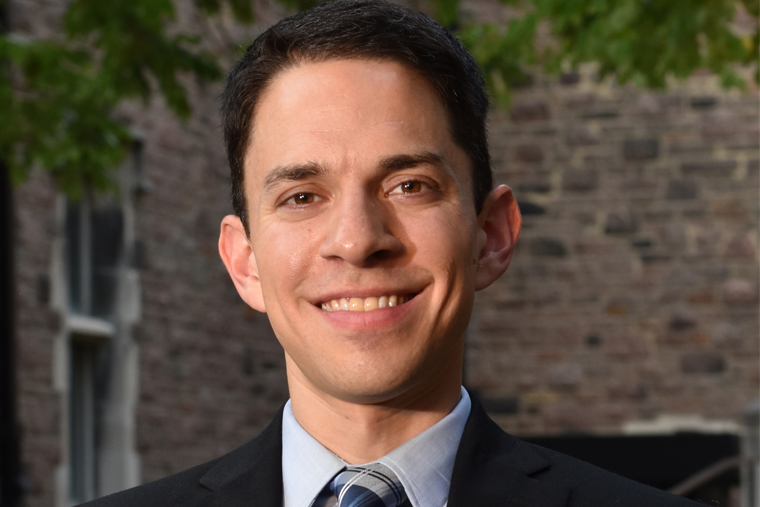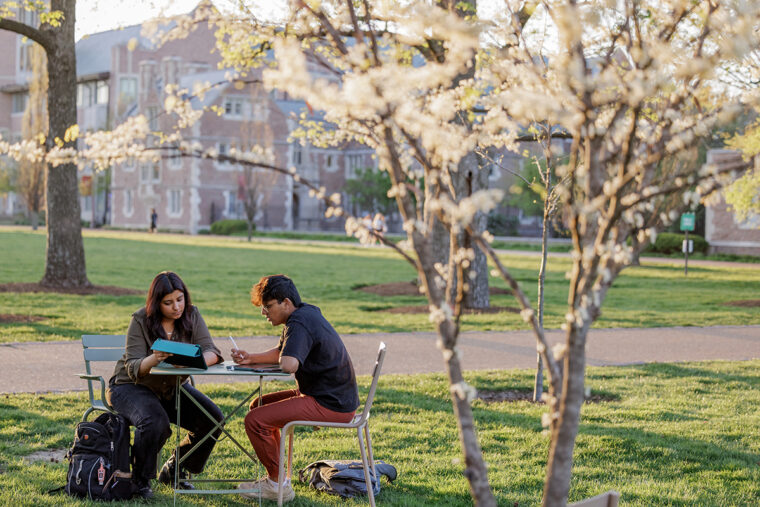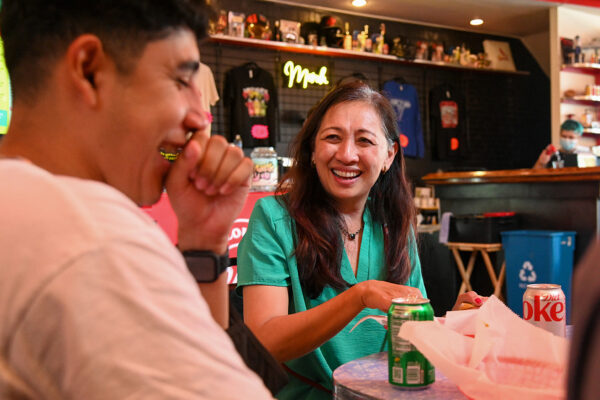How do I pick a major? Find my people? Get good grades?
For generations, new college students have struggled with these questions. But in this highly polarized, post-lockdown world, the college transition seems especially difficult. That’s why Washington University in St. Louis has developed “Bearprints for Success,” a new one-credit class to help first-year students thrive academically and personally.
Happiness expert Tim Bono, associate dean for assessment in student affairs and a lecturer in psychological and brain sciences in Arts & Sciences, helped develop the class in partnership with Anna Gonzalez, vice chancellor for student affairs; Katharine Pei, director of Student Transitions & Family Programs, and leading university researchers. Here, Bono explains why the college transition can be so difficult and how students can set themselves up for success.

Students have always fretted about going to college. What’s different now?
We see that today’s students are different. Across the nation, students are struggling with mental health. They also report they also have a hard time forming meaningful relationships. COVID really hindered their ability to connect, and we’re still seeing the ramifications of that. And our world is polarized. And so we see students who are shy about expressing views that others may disagree with when, in fact, that is the purpose of higher education. We want to have disagreements so we can understand different perspectives and wrestle with new ideas.
What does your own research tell you about the college transition process?
Weeks five to seven, in particular, can be a turning point for a lot of students. Coursework is really ramping up, student groups are getting active. Students have taken their first midterms and some may not have gotten the grades they hoped for. This is also when a lot of students experience homesickness. In general, the fall semester can feel grueling because you don’t get a true break until Thanksgiving.
A lot of students arrive at college with no idea what they want to be. How do you advise them?
The question isn’t what but why. I ask students, “What brings you joy? What kind of activities do you like? What have been your favorite classes so far? Who are the people in your life — teachers, coaches, parents of friends — who make you think, ‘Yes. I’d like to follow in their footsteps.’” Those are important first questions that can help students find their purpose, their why.
That also applies to students who have decided they want to be a physician or a writer or some other profession. It’s important for those students to ask themselves what their motivating force is. Because there is a lot of research that shows that when you know your purpose, you are much more likely to persevere when struggles inevitably emerge.
A lot of your research focuses on sleep and its impact on grades as well as health. Why is that so important?
There is what we call the ‘suffering Olympics,’ where students will talk about how little they’ve slept as if that is something to be proud of. But the research shows how foundational healthy behaviors like sleep are to success. That’s why at WashU, we talk a lot about healthy excellence — taking care of yourself and balancing the demands of college with sleep, diet and exercise.



